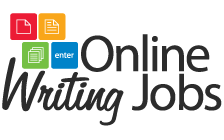
You won’t win any hearts when you misuse punctuation!
Photo by wewiorka_wagner (Flickr)
Punctuation tends to be an afterthought, not the focus, for most writers. That being said, mistakes are common. Be careful of the following seven common punctuation flubs:
The poor, abused; semicolon
Often, the best policy when using a semicolon is to not use it. However, The Oatmeal produced one of the simplest descriptions of a semicolon that I’ve ever seen. You’re just connecting two independent clauses; it’s pretty easy, actually.
A sentence fragment before a colon:
You should use a colon only after a complete sentence. This is true whether you’re introducing an ordinary list or a vertical list. It might seem odd at first, but it is the proper way to use a colon.
More than one exclamation point!!!
Exclamation points are like the holy hand grenade of the punctuation world and should be used very sparingly. Whether you’re writing fiction or nonfiction, only use it when it is absolutely necessary. When you are using the exclamation point, use the following rules:
Thou shalt take thy exclamation point. Thou shalt use one, no more. One shall be the number that thou shalt count. Two thou shalt not count, neither three nor four. The number of thy counting shall be one. Five is right out! Once the number, one, shall be reached, then one shall have completed the sentence!
Quotation marks used for “emphasis”
I once sat down at a restaurant and saw the following:
House Salad – A delicious chopped salad served with house dressing and “bacon” bits
So, readers, is the bacon real or not? If they were using quotation marks correctly, they could be calling the bacon bits “bacon” sarcastically: They are bits made of something that tastes similar to bacon, but they’re not actual bacon. Much to my incredulity, however, upon receiving the salad, I found that the bacon was, in fact, real bacon. Luckily, I’m not a vegetarian.
They were using quotation marks for emphasis, which is a ridiculous practice that must stop.
If you really feel the need to use emphasis (which you shouldn’t, as a general rule), italics are an optimal choice. Bold words are typically used for headings, though they have, in the past, been used for emphasis. Entirely CAPITALIZED words make you look like you’re shouting but also could be used for emphasis depending on the context and the audience. However, using “quotes” for emphasis does not make sense in any context. Quotation marks can be used for irony or sarcasm but not for emphasis.
You’re apostrophes’ in the wrong place.
Most writers know these rules, but most also flub this from time to time. More intensive proofreading can help this. While proofreading, say any contraction out loud to yourself to be sure that you’re using the right one.
Double periods are the worst problem in the U.S..
You should end your sentences with a single period, unless you’re ending with an ellipsis. Double periods are the worst problem in the U.S. The sentence has ended.
“Sometimes there are quotes “within quotes.” Quoteception.”
If you have a quote within a quote, it requires a different type of quotation mark. Single quotation marks (‘’) go inside the double quotation marks (“”).
The witness said, “He told the man, ‘I had nothing to do with it.’”
The lawyer asked, “Really? He really said, ‘I had nothing to do with it’?”
The witness replied, “So then, I asked, ‘Why do you say that?’”
Punctuation goes within the single quotation marks unless it’s a question mark. Then, it follows the logic of the sentence around it: If the part being single-quoted is a question, keep the question mark inside the single-quotes, but if not, put the question mark outside of them.
A possible reason why people get confused about this is that in British writing style, quotation marks work the opposite way: Single quotation marks are used for everything unless there is a quote within a quote, and then, double-quotes are also used. However, with either style, you’ll never see “quoteception,” where the same kind of quotation mark, single or double, is used twice in a row.
